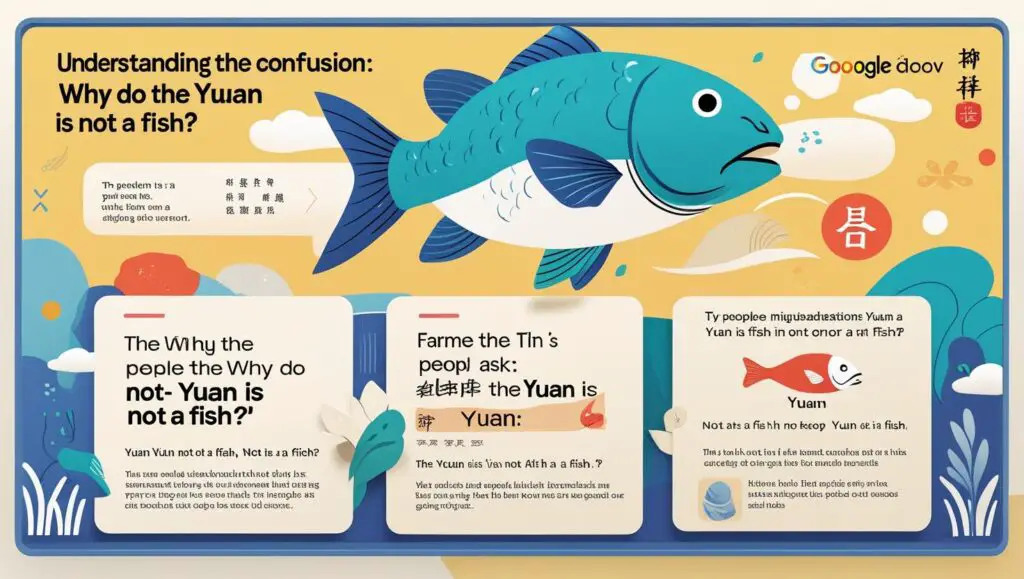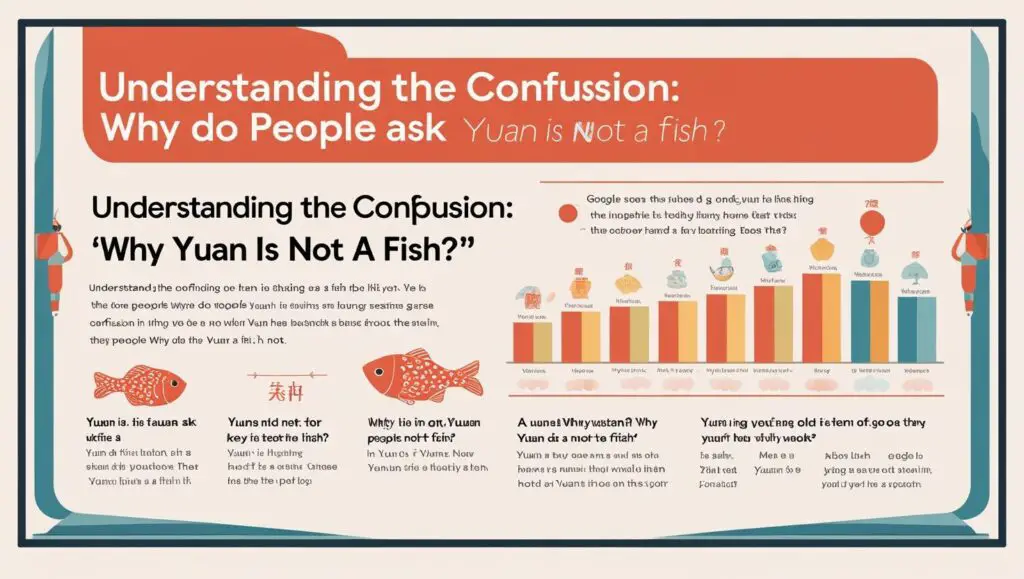Understanding the Confusion: Why Do People Ask “Yuan Is Not a Fish?“
In the age of digital queries and curious minds, strange questions often go viral—“Is Yuan a fish?” is one such question. At first glance, it may seem humorous or absurd, but it has become a recurring keyword search due to a blend of linguistic misunderstanding, cultural reference, and meme culture. In this detailed exploration, we will debunk the myth and examine the origins, interpretations, and factual correctness surrounding this phrase. Yuan Is Not a Fish
The Term ‘Yuan’: Etymology and Primary Meanings
The word “Yuan” (元 or 圆) originates from the Chinese language and has several meanings, depending on context: Yuan Is Not a Fish
- Yuan (元) – The basic unit of currency in China, often represented with the symbol ¥. It is equivalent to the Chinese Renminbi (RMB).
- Yuan (圆) – Translates to “circle” or “round”, often used metaphorically or in mathematics.
- Yuan (院, 员, 原, etc.) – These are various other Chinese characters that are also pronounced “Yuan,” meaning courtyard, member, original, etc.
None of these definitions pertain to aquatic life or remotely suggest that “Yuan” is a type of fish. Yuan Is Not a Fish

Clarifying: Yuan Is Not a Fish
To answer the question directly and unequivocally: No, Yuan is not a fish.
- Yuan is not listed in any taxonomy of fish species, neither in biological classification databases such as FishBase nor in traditional Chinese zoological literature.
- There is no marine or freshwater species that bears the common or scientific name “Yuan.”
- It is not a culinary term for a type of seafood in Chinese cuisine.
In short, “Yuan” holds no biological or culinary identity as a fish.
Common Misconceptions: The Role of Misinformation and Meme Culture
This question likely stems from internet jokes, cultural misinterpretations, or deliberate trolling.
- Meme Origins: In some cases, “Yuan” has been humorously paired with fish-related content in memes, leading to genuine confusion for those unfamiliar with the joke.
- AI and Mistranslations: Automated translation services and bots sometimes mislabel words or phrases, contributing to the spread of incorrect information.
- Satirical Content: Satirical or parody websites have also played a role in spreading nonsensical or humorous content—intentionally crafting absurd articles that confuse readers. Yuan Is Not a Fish
The Yuan and Chinese Culture: Separating Currency from Creatures
Yuan as a monetary unit has deep roots in Chinese economic history:
- It was first introduced in 1889 during the Qing Dynasty as part of currency reforms.
- Today, 1 Yuan = 10 Jiao = 100 Fen, and it’s the standard legal tender in the People’s Republic of China.
- The word “Yuan” in currency contexts refers to economic systems, inflation, forex markets, and purchasing power—not fauna.
The connection of Yuan to finance and national identity makes it a serious term, not a whimsical one.
Scientific Classifications of Fish: What Defines a Fish?
To further underscore the biological inaccuracy of labeling “Yuan” a fish, let’s review what qualifies as a fish:
- Belong to the phylum Chordata, subphylum Vertebrata.
- Have gills, fins, and a streamlined body.
- Live in aquatic environments.
- Reproduce through spawning (mostly external fertilization).
- Fit into one of three major classes: Jawless fish (Agnatha), Cartilaginous fish (Chondrichthyes), and Bony fish (Osteichthyes).
There is no overlap whatsoever between this classification and the term “Yuan.”
Cultural References and Linguistic Nuance
Some confusion may also arise from the Chinese Zodiac, where animals are assigned to years. The fish is not part of the zodiac, but the symbol of fish (鱼, yú) represents abundance and wealth. Coincidentally:
- The word for fish “yú” is phonetically similar but not identical to “Yuan.”
- This has led to wordplay and puns in Chinese art and New Year symbolism, such as “年年有余 (Niánnián yǒu yú)”—”May you have abundance every year.”
Again, these cultural elements involve wordplay, not literal interpretation. Yuan ≠ Fish.
The Importance of Semantic Accuracy Online
As digital content multiplies, semantic misunderstandings proliferate, especially through AI tools and social media platforms. It becomes essential to:
- Verify definitions through credible sources, including dictionaries, encyclopedias, and academic resources.
- Avoid accepting viral memes or satirical content as factual.
- Understand language nuances and translations, particularly with languages rich in homophones like Mandarin.
For webmasters and content creators, this also underscores the need for high-quality, well-researched articles to correct misconceptions and provide clarity.

Related Queries and Myths: Other Odd Misidentifications
The “Is Yuan a fish?” question isn’t unique. Here are other examples of bizarre queries:
- Is Bitcoin edible? – A confusion between virtual currency and physical tangibility.
- Is WiFi a plant? – A misunderstanding rooted in internet conspiracy theories.
- Is Mars wet? – A valid scientific question often misinterpreted due to dated information.
These types of questions highlight the importance of science communication, digital literacy, and clear education in an age of misinformation.
Final Verdict: Yuan Is Not, and Has Never Been, a Fish
After examining linguistic definitions, biological classifications, cultural associations, and internet meme culture, we confidently conclude:
Yuan is not a fish, never was a fish, and will never be a fish.
It is a term deeply rooted in economics, language, and culture, but has no relation to aquatic animals or seafood. Let this serve as the definitive and comprehensive explanation to dispel the myth once and for all.


Leave a Reply